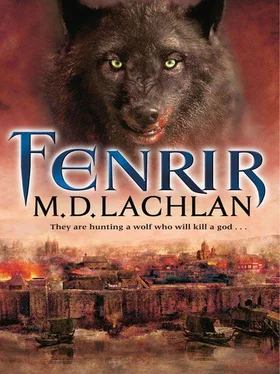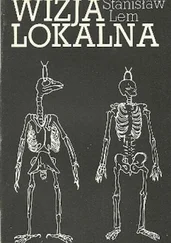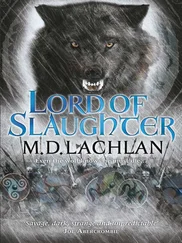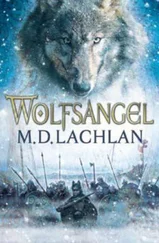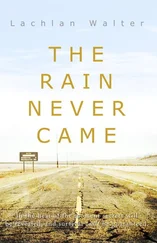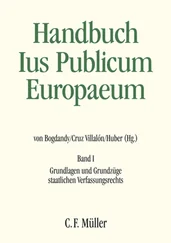M. Lachlan - Fenrir
Здесь есть возможность читать онлайн «M. Lachlan - Fenrir» весь текст электронной книги совершенно бесплатно (целиком полную версию без сокращений). В некоторых случаях можно слушать аудио, скачать через торрент в формате fb2 и присутствует краткое содержание. Жанр: Фэнтези, на английском языке. Описание произведения, (предисловие) а так же отзывы посетителей доступны на портале библиотеки ЛибКат.
- Название:Fenrir
- Автор:
- Жанр:
- Год:неизвестен
- ISBN:нет данных
- Рейтинг книги:5 / 5. Голосов: 1
-
Избранное:Добавить в избранное
- Отзывы:
-
Ваша оценка:
- 100
- 1
- 2
- 3
- 4
- 5
Fenrir: краткое содержание, описание и аннотация
Предлагаем к чтению аннотацию, описание, краткое содержание или предисловие (зависит от того, что написал сам автор книги «Fenrir»). Если вы не нашли необходимую информацию о книге — напишите в комментариях, мы постараемся отыскать её.
Fenrir — читать онлайн бесплатно полную книгу (весь текст) целиком
Ниже представлен текст книги, разбитый по страницам. Система сохранения места последней прочитанной страницы, позволяет с удобством читать онлайн бесплатно книгу «Fenrir», без необходимости каждый раз заново искать на чём Вы остановились. Поставьте закладку, и сможете в любой момент перейти на страницу, на которой закончили чтение.
Интервал:
Закладка:
Leshii guessed that the wolfman must be one of the northerners’ wild priests, though he had never seen one like him before. The Varangians’ kings were their main holy men but a variety of odd individuals sacrificed to their strange gods at their temples in the woods outside Lagoda. They wore symbols of hammers and swords and, he had heard it rumoured, even real nooses for their very secret ceremonies. This man, though, just wore a strange pebble at his neck on a leather thong. Something was scratched on it, but Leshii had never quite got close enough to see what.
The Northman took off the bag he carried on his back and unrolled something from it.
Leshii, to whom the contents of bags were always an irresistible spark to curiosity, came to see what it was. He recognised it immediately — it was a complete wolfskin, though rather unusual. The fur was coal-black and, even in the dusk, its gloss seemed almost unnatural. It was huge, quite the biggest wolf pelt Leshii had ever seen, and as a trader he had seen a few.
‘It’s a fine skin,’ he said, ‘but I don’t think the townsmen of Paris will be in the mood for business. If you are planning to sleep in it then in such cold as this I, your guide, should be allowed a share.’
The Northman didn’t reply, just walked back into the trees taking the pelt with him.
Now Leshii had nothing to do. He began to feel sorry for himself. He had hoped the rumours of the siege of Paris had been untrue. If Paris was under attack it was likely that other bigger and more important trading centres, such as Rouen, had taken a hit too.
Had he struggled on with his cargo for nothing? He supposed there might be the possibility of finding some takers for his goods in the Viking camp. He went to see to the mules, in two minds whether to take off their burdens there and then or to keep them on in case any stray northerners came up the hill after dark and he had to get away quickly. Perhaps he could sell to the invaders. He had lived under the rule of the Varangians most of his life and understood them. He could do a deal, he thought, if he could persuade them not to hang him in sacrifice to one of their odd gods.
He looked down at the river plain. The longships to the north were withdrawing to the south bank. Something was happening there. The Danes were running away from the bank as if pursued. From the east, casting long shadows behind them, he saw two riders moving across the plain — one leading the other’s horse. The Danes were rushing to greet them. Perhaps they were merchants, he thought, perhaps there was a proper market for his goods after all.
He was cold and he was old, too old for this. He might even have found a way to refuse Helgi and stay in Ladoga had his business been better. Five rough years with cargoes lost to bandits and a silkworm disease in the east had eaten into his savings. Helgi’s offer to buy him a cargo had been too good to refuse. If he could get a decent price for it he would leave the travelling to younger men in future. Too tired to think any more, he untied the bags from the mules. Could he sit down to a fire and some wine? Why not? One more plume of smoke wouldn’t matter in the darkness and, behind the hill, the fire wouldn’t be seen by anyone.
He saw to the animals, laid out his rug, made a fire, drank his wine and ate some dried figs along with a little flat bread and some cheese. Before he knew it he was asleep, and then, under the light of a full and heavy moon, he was awake again. What had woken him? Chanting, an understated mumble of words like the sound of a distant river.
He shivered and stood to find his coat. His head cleared. Never mind the coat, where was his knife? He took it out and looked down at it in the moonlight. It was the one he used to cut silk — sharp, broad-bladed, single-edged and comforting.
The chanting went on in no language of the many he understood. He was faced with a choice: go towards it, ignore it or go away. With a train of six mules there wouldn’t be much sneaking off. The noise was too disquieting to let him sleep and he knew that there was the possibility it was some strange enemy. Better to surprise than be surprised, he thought, and made his way towards the sound.
The trees cut sharp shadows into the moonlit ground, dark lines of ink on a page of silver. Leshii gripped his knife. There was a pale shape sitting thirty paces from him through the trees. He made his way towards it. The chanting stopped. A cloud blew across the moon. Leshii could see nothing. He went forward sightless, groping from tree to tree. And then, at his shoulder, he heard a breath.
He took a pace back and stumbled on a root, falling onto his backside. He looked up and, as the moon turned the edge of a cloud to crystal, it was as if the shadows seemed to coalesce into something approaching a human form. But it wasn’t human because its head was that of a huge wolf.
Leshii shouted out and pushed forward his knife to interpose it between him and the thing that seemed to be drawing in the shadows, taking its substance from them.
‘Do not fear me.’
It was the Chakhlyk, the Northman, his voice hoarse with stress. Leshii squinted into the darkness and saw that it was him, with that huge pelt draped over his shoulders, the head of the wolf above his head, as if it was his own. He had become a wolf, a wolf made of shadows, skin, fear and imagination.
The wind blew the clouds aside for a moment and the tall figure was caught in the stark light of the moon. The pebble at his neck was gone and his face was smeared with something, his hands too, something black and slick. Instinctively Leshii put his hand forward and touched the wolfman’s head. The merchant felt wetness on his fingers. He put them to his lips. Blood.
‘Chakhlyk?’
‘I am a wolf,’ said the Northman. The clouds returned, and it was as if he was a pool of darkness into which all the shadows of the forest poured as streams. Then Leshii was alone in the night.
2
Jehan could smell the plague setting in, the deep note of putrefaction beneath that of the filthy streets, beneath the sour starvation on the people’s breath.
They carried him down from Saint-Germain-des-Pres at night, the smoke of the burned abbey still in his clothes. He felt the cool of the water approaching, the stumble of the monks as they put his pallet onto the boat, the sick rocking that accompanied the journey across. He sensed the tension in the men in the tight silence that they kept, heard the careful movement of the muffled oars, the strokes gentle and few, and then the harsh whisper of a password.
‘Who?’
‘Confessor Jehan. Blind Jehan.’
The gate opened and the perilous part began — the transfer from the little boat onto the narrow step. The brothers tried to keep him on the pallet at first but it was quickly obvious that would be impossible. He solved the problem himself.
‘Carry me,’ he said. ‘Come on, hurry up. I am light enough.’
‘Can you climb on my back, Confessor?’
‘No. I am a cripple, not a monkey — can you not see?’
‘Then how shall I carry you?’
‘In your arms, like a child.’
The men escorting him were new to the monastery — warriors sent from a brotherhood to the south to help Saint-Germain defend against the Northmen, much good that the two of them had done. They were unused to Confessor Jehan and he could feel their uncertainty in the way he was taken from the boat. The warriors had never touched a living saint before.
It was a tight squeeze through the Pilgrims’ Gate. The walls of the city had been built by the Romans nine feet thick. The passage through them on the city’s north side had been cut later, to spare royalty the crush of the market-day crowds. It was not a weakness in the wall but a strength. Any invader breaking in would have to turn his body and sidle into the city, no chance to use a weapon. The passage from the gate was known as Dead Man’s Alley for good reason.
Читать дальшеИнтервал:
Закладка:
Похожие книги на «Fenrir»
Представляем Вашему вниманию похожие книги на «Fenrir» списком для выбора. Мы отобрали схожую по названию и смыслу литературу в надежде предоставить читателям больше вариантов отыскать новые, интересные, ещё непрочитанные произведения.
Обсуждение, отзывы о книге «Fenrir» и просто собственные мнения читателей. Оставьте ваши комментарии, напишите, что Вы думаете о произведении, его смысле или главных героях. Укажите что конкретно понравилось, а что нет, и почему Вы так считаете.
